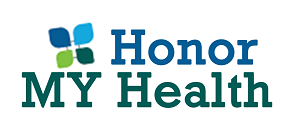
Early detection and timely intervention are vital in the battle against breast cancer. When it comes to diagnosing this prevalent disease, it is crucial to consult with the best oncologist specializing in breast cancer in Noida. This blog aims to explore the indicators that warrant a consultation with the best oncologist for breast cancer diagnosis and highlight the importance of early detection in achieving favorable treatment outcomes. By recognizing these indicators and seeking consultation with the best oncologist in Noida, individuals can take proactive steps towards managing their breast health and receiving appropriate care.
Notable Breast Changes and Abnormalities
The presence of noticeable breast changes and abnormalities is a significant indicator for consulting with the best oncologist in Noida. These changes may include the discovery of lumps or masses in the breast or underarm area, changes in breast size or shape, nipple abnormalities such as inversion or discharge, and skin changes like redness or dimpling. Although these changes may not always indicate breast cancer, it is crucial to have them evaluated by an expert to rule out any potential concerns.
Family History of Breast Cancer
A family history of breast cancer is another crucial indicator for consultation with the best oncologist in Noida. If an individual has a first-degree relative (such as a mother or sister) who has been diagnosed with breast cancer, especially at a young age, their risk of developing the disease may be higher. By consulting with the best oncologist in Noida, individuals can assess their personal risk based on their family history and receive appropriate screening measures or genetic testing if necessary.
Genetic Predisposition
Certain genetic mutations, such as BRCA1 and BRCA2, significantly increase the risk of developing breast cancer. If an individual has a known genetic predisposition to breast cancer or a family history of these mutations, consulting with the best oncologist in Noida is essential. These experts can provide guidance on surveillance strategies, risk-reducing interventions, and personalized screening protocols based on the individual’s specific genetic profile.
Abnormal Mammogram or Imaging Findings
If an individual receives an abnormal mammogram or encounters other concerning imaging findings, it is crucial to consult with the best oncologist in Noida specializing in breast cancer. Abnormalities detected during mammograms, such as suspicious masses, calcifications, or architectural distortions, may require further evaluation through additional imaging tests or a biopsy. By consulting with the best oncologist in Noida, individuals can receive the necessary expertise and guidance for appropriate diagnosis and treatment.
Breast Cancer Symptoms or Concerns
Experiencing symptoms or having concerns related to breast cancer is a clear indicator for seeking consultation with the best oncologist in Noida. Symptoms may include unexplained breast pain, persistent breast swelling or redness, changes in breast texture, or any other persistent breast-related concerns. By consulting with an expert, individuals can ensure a thorough evaluation of their symptoms and receive appropriate diagnostic tests if necessary.
Seeking a Second Opinion for Breast Cancer Diagnosis
Seeking a second opinion is an important indicator for consultation with the best oncologist in Noida, especially when individuals have received a breast cancer diagnosis or have concerns about the initial diagnosis. Obtaining a second opinion can provide individuals with additional perspectives, confirm the diagnosis, offer different treatment options, or provide reassurance about the recommended course of action.
Conclusion
Recognizing the indicators for consultation with the best oncologist in Noida is crucial in ensuring early breast cancer diagnosis and improving treatment outcomes. By paying attention to notable breast changes, considering family history and genetic predisposition, being aware of abnormal mammogram or imaging findings, addressing breast cancer symptoms or concerns, and seeking second opinions when needed, individuals can take proactive steps towards managing their breast health. Consultation with the best oncologist in Noida is vital in receiving accurate diagnosis, personalized treatment plans, and access to advanced breast cancer care.
Stay informed about Breast cancer treatment or Lung Cancer Treatment in Noida, etc., follow their instructions, and consider booking consultation with the specialists.
FAQs (Frequently Asked Questions)
Q: When should I consult an oncologist for breast cancer screening?
A: It is recommended that women begin annual mammograms at age 40 or generally earlier if they have a family history of breast cancer or other risk factors. Consultation with an oncologist for breast cancer screening is advisable if you have concerns about your breast health or if you meet any of the indicators mentioned in the blog.
Q: What can I expect during a consultation with an oncologist for breast cancer diagnosis?
A: During a consultation, the oncologist will review your medical history, conduct a physical examination, and discuss any breast abnormalities, symptoms, or concerns you may have. They may order additional tests, such as imaging studies or a biopsy, to gather more information and make an accurate diagnosis.
Q: How do I choose the best oncologist for breast cancer diagnosis in Noida?
A: Choosing the best oncologist involves considering factors such as their experience, expertise in breast cancer, patient reviews, and their affiliation with reputable medical institutions. Seeking recommendations from primary care physicians or trusted sources can also help in selecting the right oncologist.
Q: What are the treatment options for breast cancer?
A: Treatment options for breast cancer may include surgery, radiation therapy, chemotherapy, targeted therapy, and hormone therapy. The specific treatment plan depends on factors such as the type and stage of breast cancer, individual patient characteristics, and the oncologist’s recommendations based on their expertise.
Q: Are there any preventive measures for reducing the risk of breast cancer? A: While it is not possible to prevent breast cancer entirely, certain lifestyle choices can help reduce the risk. These may include maintaining a healthy weight by excercising, limiting alcohol consumption, breastfeeding if possible, and undergoing regular breast cancer screening as recommended by your healthcare provider.

